By J.A. Jones, Staff Writer
TAMPA BAY – Barak Amen is an electronics engineer in the missile defense and aerospace sector, a father, husband, entrepreneur, and a patent holder. He is well-known as a promoter and comedian.
He also recalls how his own childhood inspired him to create the nonprofit Father Figures Mentorship and Transitional Services to give back to youth and his community.
“I grew up without a dad; growing up without a father, I had to extract the positive side of different men in the community,” he shared. “For me, it was just seeing what men did — I liked how this guy dressed, I liked how this guy took care of his family. I liked how this guy spoke — or how this guy just handled himself.”
Amen realized as he got older that, all along, he had been paying attention to different men he looked up to as father figures — and decided to start his own mentoring project in 2012.
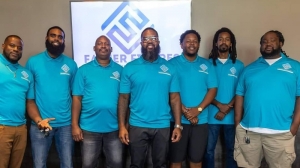 He founded the nonprofit for young men like him, who didn’t have fathers or inspiring father figures in their lives, “so they could see different aspects of positive men; we realized the father figure is what was missing.”
He founded the nonprofit for young men like him, who didn’t have fathers or inspiring father figures in their lives, “so they could see different aspects of positive men; we realized the father figure is what was missing.”
Father Figures Mentorship has impacted over 2000 kids to date, working in schools and group homes including Middleton High School in Tampa, Mt. Moriah Christian Academy in St. Pete, North Tampa Success Center, and SNH Group Home.
Amen noted that when young boys don’t have anyone to keep them accountable, their behavior is impacted. “[Everyone asks] who’s responsible for them, or who’s allowing this to happen.”
He said the answer is often that “they had no positive figures in their lives. They might have had men around, but they weren’t positive male role models.”
The program uses simulation exercises – “Much like a game of pool — ‘if I do this, there’s a high probability of that happening’,” explains Amen. The mentors also coach youth in overcoming obstacles and conflict resolution.
He said as mentors they get a chance to see their students’ growth in real time as they watch their behavior change and hear from the youth themselves on what they’ve learned from the sessions. They also hear from the authority figures in the boys’ lives as well: “When we speak with student services and their parents, both give us positive feedback.”
But the group wants to do more – and transitional housing is part of the nonprofit’s larger plan.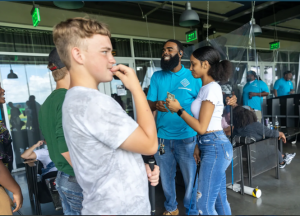
Amen noted that while they have experienced great results when they’re with the youth, lessons can be lost once they go back home. Negative environments and difficulties with parents can detract from the lessons the youth are learning while with their mentors.
The engineer-turned-mentor believes that having their young students in a residential experience will greatly benefit the youth, families, and community – “inoculating” them against negative community influences while ensuring positive messaging has a greater chance of being received and retained.
“We can provide them with more constant interaction, mentorship, and leadership,” the nonprofit founder acknowledged.
Amen noted that while youth may not realize exactly what they’re missing, they know they want role models and will emulate whoever is available and around. He believes that young people do have an “appetite” for success but might not get the right “nutrition.”
“Think about your palate; you’re hungry for something that’s going to fill that hunger in your stomach; but it might not be the most nourishing food. Kids will eat sugary snacks all the time because that is what’s in front of them; but if they’ve got a home-cooked meal that’s placed in front of them, it would take less to fill them up, and it’s nourishing.”
He added that kids want to model themselves after someone successful but sometimes don’t pick the right examples: “Whatever is in proximity is what they do, is what they consume.”
Amen is convinced that once they see the results of picking positive images, “they’re all in, and then they consume that positivity. But if what’s around them is a negative influence, they’re going to consume that too.”
He added that they want to see what other men are doing. “That’s how they get fashion, how they get how to wear their hair, how they get how to talk. That’s how they get the sports talk, how they get their bravado, from the men around them. But we want to be strategic in putting the men around us.”
Amen relayed that while sports are fine, “we know the longevity and the possibility of them making it to the pros is very slim. We want to show them there’s nobility in being an AC repairman, creating a good life and giving back to the community that you live in. There’s nobility in being a police officer to create change in the community. There’s nobility in being a plumber.”
He said that youth rarely expect to find him in his chosen field of engineering. “Showing them what a Black engineer looks like is something that I pride myself in because when I asked them to close their eyes and imagine an engineer, it’s typically a bald, white guy with glass and a white coat.”
Amen said that being able to reshape that image is what helps the youth they work with reshape the possibilities of their future and recalibrate their trajectory.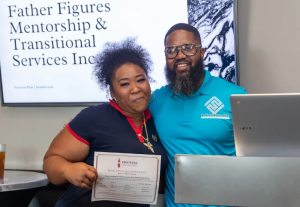
For more information on Father Figures Mentorship and Transitional Services visit https://fatherfigures365.com.

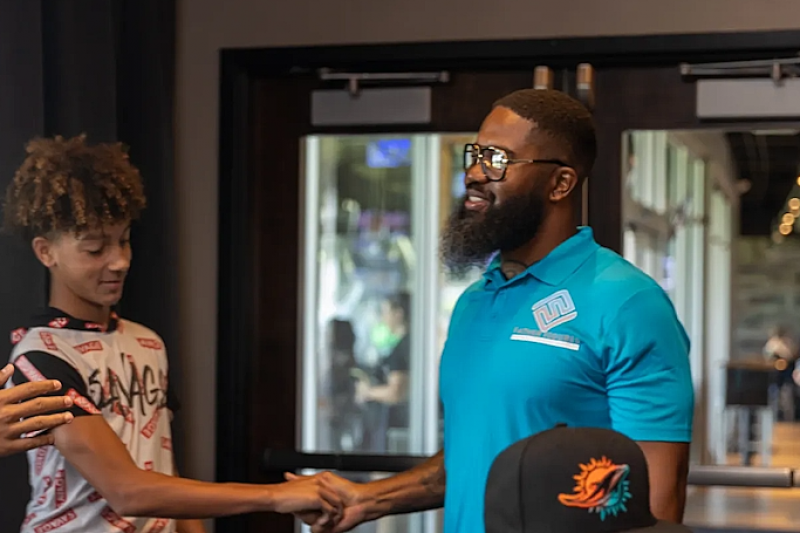
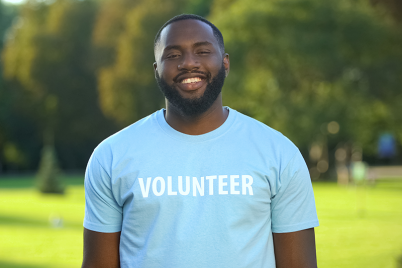
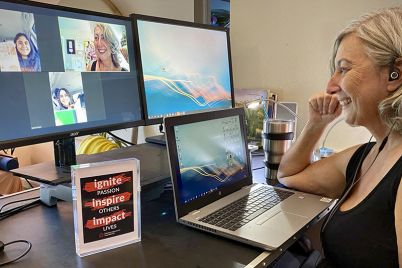
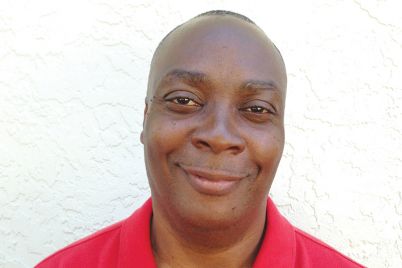
What a wonderful story! I believe strongly that Mr. Amen and team are laser focused on the root causes of young men going down wrong paths due to dysfunctional environments and less than ideal role models within those environments. Bravo! Nice job, Jake Ann!